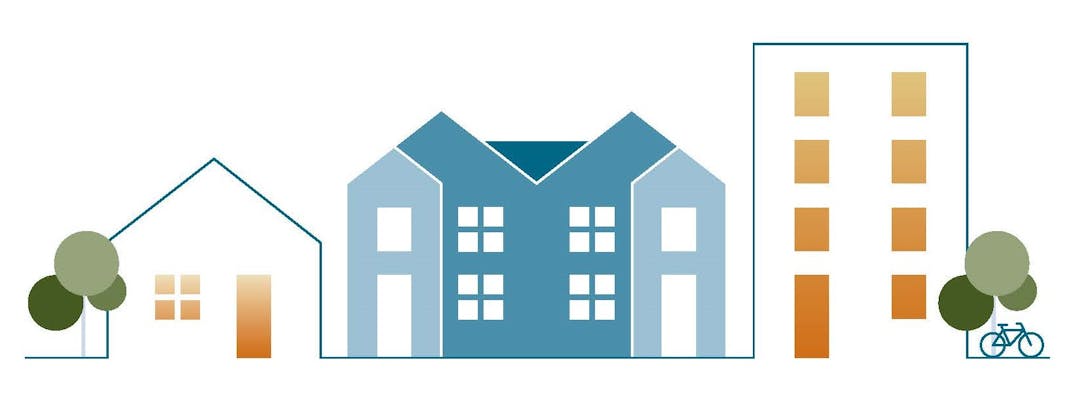Missing Middle Housing

The Missing Middle Housing Study seeks to support the availability of more kinds of housing types in Bloomington through the development of housing that is diverse in form and scale beyond what is currently offered on the market. Missing Middle Housing types are those compatible in form and scale with a single unit, detached home and include duplexes, triplexes, small multiplexes, townhouses and cottage courts. Missing Middle Housing types are important in a community like Bloomington as they offer solutions to meet the needs of all ages of residents and can better accommodate multigenerational living opportunities. Missing Middle Housing types may also reduce the cost of transportation when placed at areas that are accessible to pedestrian and transit networks and support for local businesses by enabling more customers to live in closer proximity to commerce. The Missing Middle Housing Study aims to understand the current barriers as they exist in Bloomington and inform future policies with inclusive community engagement strategies and evidence-based practices.
Promise to the Public: Staff is reaching out to the public to share information about Missing Middle Housing and collect feedback on experience, perspectives, and other information regarding the development of Missing Middle Housing broadly and in Bloomington. Staff will share project updates on this site, including information about key themes and learnings from the public, and how public input impacted the decisions.
2025 Update: Bloomington continues to have low vacancy rates for both renter and owner-occupied housing. The City also has an increasingly aging population and smaller average household size. This creates an opportunity to prioritize housing types that are for people at different stages of life and with different needs. Staff has conducted numerous public engagements over the past few years to inform the project. Summary reports are available on this Let’s Talk webpage (Public Engagement Summary).
This study is moving forward through two phases of City Code amendments. Phase I relates to amending existing standards related to accessory dwelling units (ADUs), duplexes and townhouses, which are already allowed in the City. These amendments are meant to make standards more flexible to continue production of these housing types. Phase I amendments were presented at a public hearing to the Planning Commission on April 10th, 2025 and to the City Council on May 19th, 2025. The Phase I Ordinance was adopted by the Council on May 19th, 2025.
Phase II relates to creating new uses and standards for Missing Middle Housing types to expand housing production in the City. These amendments would add regulations for triplexes, fourplexes, multiplexes, and cottage courts in areas of the City guided for more housing. Phase II amendments are scheduled to be presented at public hearings to the Planning Commission on January 22, 2026 and to the City Council on February 23, 2026.




